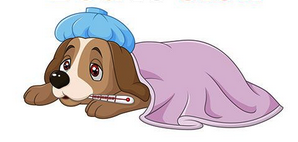
The holidays are all about wonderful food and treats and most pets are thrilled to partake in the indulging, but some foods you might give them could make them sick or worse.
Pets, like the rest of us, tend to get more treats at holiday time — from their pet parents or from houseguests. Various foods or treats can put them at risk for any number of health issues ranging from mild to life-threatening [think everything from a mild case of diarrhea all the way to spending the holiday taking your pet to the emergency room.]
Dr Lisa Freeman, a veterinary nutritionist and professor at Tufts University’s Cummings School of Veterinary Medicine in Boston has some suggestions to help with managing the holidays.
- First, there are foods that are downright dangerous for your pets: chocolate, grapes, raisins, xylitol (found in sugar-free gum and in candy or baked goods), onions, garlic, bones (raw or cooked), high-fat foods like roast beef, lamb chops or ice cream), raw meat, macadamia nuts and avocado.
- But you also have to watch out for the trimmings: Wooden skewers or the string used to tie roasts can be very dangerous to pets if eaten, Freeman noted.
- The best way to keep such foods from your pets is to make sure your furry friends can’t find their way into the trash, and pay close attention to foods on the counter or table before and after cooking. It’s not unusual for veterinary emergency rooms to see a pet that grabbed a holiday turkey or ham while no one was looking. Pets also can steal cookies, chocolates, pies and other dishes, so keep those foods out of their reach.

Some suggested guidelines.
- Exercise portion control for your pet’s sake. A cookie or piece of turkey that you give to your dog might seem reasonable, but that amount could be the equivalent of a human eating a Big Mac. Pets are happy to get any kind of special treat, so keep portions small.
- Treats should account for less than 10% of your dog or cat’s total daily calories. For example, an active 25-pound dog needs about 600 calories daily, so they should get no more than 60 calories daily from treats. meanwhile, a 10-pound cat typically needs just over 200 calories daily, so that means no more than 20 calories daily from treats.
- What treats are good for them? Most fruits and vegetables make great treats for dogs. That includes apples, pumpkin, banana, strawberries, blueberries, melon, carrots, corn and green beans. Just avoid vegetables loaded with butter, sauces, salt and other seasonings.
- If your pet has medical issues, watch extra treats. For example, many holiday foods are high in salt, which can be a concern for pets with heart disease, while dogs and cats with kidney disease need to be careful of phosphorus (high in meat and dairy products) and sodium.
- Pets with digestive issues can easily experience diarrhea or vomiting when given foods they don’t typically eat or high-fat foods.
- Last but not least, tell your guests the “house rules” about treats, especially if your pet has a medical condition or dietary issues. Better safe than sorry.
Source: Vet Nutrition Tufts University
Happy Holidays
